|
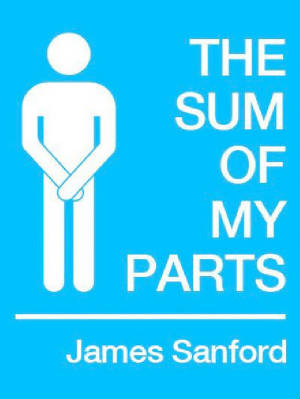
James Sanford was born in Columbus, Ohio, but has lived
in Michigan for the past 30 years. His career in journalism began at the age of 16 when he was hired to write about music
and movies for the long-gone Connections section of the Grand Rapids Press. He graduated from Western Michigan University
with a double major in communications with film emphasis and English with writing emphasis. After 10 years as a theater manager
and film publicist, he returned to journalism, spending more than a decade at the Kalamazoo
Gazette as a film critic, feature writer and entertainment section coordinator. He has also been a correspondent for the
PBS series "Kalamazoo Lively Arts" and spent seven seasons with the improvisational comedy group Crawlspace Eviction (their
feature film "Comic Evangelists" was showcased at the 2006 American Film Institute Festival in Hollywood). His theater credits
include "The Life and Adventures of Nicholas Nickleby" and "A Christmas Carol" at the New Vic Theatre, "Dinner with Friends"
at the Knockabout Theatre, "Class Reunion" at the Kalamazoo Civic Theatre and "Psycho Beach Party," "Die! Mommy! Die!," "Said
and Meant," "Bug," 'Bart the Temp," "Swindling Jehovah" and "Hair" at the Whole Art Theatre. He now lives in Lansing, where
he is arts and culture editor of City Pulse.
James Sanford
on his book, The Sum of My Parts, available now as a Kindle Single:
“In 2002, at the
age of 39, I was a successful journalist and critic when I was diagnosed with testicular cancer, a disease that usually strikes
men in their teens and 20s. At first I tried to deny my condition (trying to treat a tumor with hot baths and ice packs).
Eventually, I decided I would learn as much about my illness as possible while trying to keep my emotions on hold.
What
followed was an experience that finally forced me to deal with issues about my body that I had tried to ignore for decades.
Along the way I dealt with a physician who gave me ridiculous advice and acquaintances who asked unbelievable questions. But
I was also fortunate to be surrounded by people who supported me and doctors who helped me through the process.
"I
kept reminding myself that this did not happen to me because I ate the wrong foods, or didn't get enough vitamins, or had
sex with the wrong people (and yes, there were people -- not necessarily friends -- who flat-out asked me if it was sexually
transmitted). I did not have this tumor because I got too much sun, or didn't get enough exercise, or was careless about my
personal hygiene. There was no explanation. It simply happened..."
Throughout the sometimes painful, often strange
and occasionally bizarrely funny recovery period, I began to realize what had happened to me was not a tragedy but an opportunity
to take a second look at where I was and where I wanted to be. Cancer, I learned, is not always a death sentence; in my case,
it gave me the chance to live a better life.”
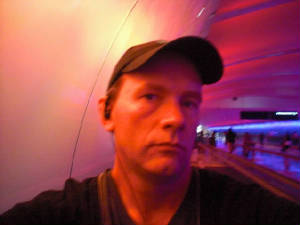
|
| James Sanford |
The
Smoking Poet: James, we’re glad to talk to a healthy you! Your new book, The
Sum of My Parts, currently sold as a Kindle Single (a book of less than 30,000 word count, sold only in electronic form
for e-readers) on Amazon, however, is a very honest and intimate look at your recent (2002) experience of having testicular
cancer. What inspired you to put that experience in writing?
James
Sanford: Almost from the time I was diagnosed, I had people telling me that I needed to write about this. I wasn’t
sure I agreed. Certainly I was not enthusiastic about the idea while I was still going through radiation and recovery —
and I’m glad I wasn’t. That would have almost certainly been a very maudlin, “poor, poor pitiful me”
sort of book.
I did try, on a few occasions, to write about the
experience, but I didn’t see any real drama there. As a journalist, you look for a story arc in your profile pieces:
Where does this story begin, how does it progress and what’s the resolution? My story seemed utterly flat. I had a tumor,
I had the tumor removed, I went back to living. That’s all I thought it was.
But having the chance to step back from it, to take
a few years and see that so-called “big picture” was a real gift. It wasn’t merely a cancer story; it was
about my issues with my body that go back long before the tumor ever showed up. Amazingly, I discovered all of this as I was
doing the actual writing: I definitely did not plan to detail my junior high experiences or some of the other incidents that
ended up being a part of the story. But, as I used to tell my writing students at Western Michigan University, “You
don’t know the story until you write the story.” Certainly, I did not know my own story.
TSP:
Is writing therapy? Or did you feel that there needs to be some awareness raising? Perhaps both? You mentioned in the book
that when you wanted to learn more about this particular kind of cancer, you found surprisingly little information …
James:
I would not say that writing the book was therapeutic; sometimes it was borderline-grueling. What has been wonderful are the
responses I’ve received from readers all over the world, letting me know that they could identify with some of the issues
I raised. Many of them mentioned that there is still a frustrating lack of information on what testicular cancer patients
can expect. You’re told that it’s now highly curable with early detection, and that’s marvelous. But what
kinds of situations are you going to confront? What sort of adjustments will you have to make? Those questions are often ignored
or breezed by in the information that’s out there. If nothing else, I do think my book has put a personal face on what’s
still a disease that most people don’t want to discuss.
TSP:
They say laughter is medicine. Your topic is deadly serious, but you take it on with a dry sense of humor. Weirdly enough,
it’s a fun, sugar with the medicine, read! Hurts to laugh? And the book concludes with a wonderful scene that combines
healing with the ability to take life on a lighter note. How did laughter and comedy play a part in your recovery?
James:
I was not finding much comedy in my life when I was going through this, that’s for sure. I remember going to a website
on testicular cancer that had a section that was actually marked “Humor” and a little note that promised “there
is a lighter side to this.” And I was completely disgusted: “Yeah, the hell there is!” I logged out of that
site in no time flat.
But again, over the course of time I did see there
was a sort of weird humor in much of what was going on. I think it began when I was about to go into the operating room and
the nurse handed me a marker and asked me to draw an arrow on my thigh, pointing to the location of the tumor. Really? How
can you not see it? Should I be turning my body over to people who need me to show them where my tumor is? But it was too
late to turn back, so I drew this big blue arrow on my inner thigh with the words “this side” inside it. Then
I got into the operating room, and they were playing Caribbean steel-drum music: I half-expected to get some jerk chicken
and a banana daiquiri. It was impossible not to find it funny.
Report after report has demonstrated that people
who are able to laugh at their experiences are far more likely to rebound and feel better than people who dwell on the dark
side and concentrate on the misery. Plus, it’s far less taxing to laugh than it is to cry all the time.
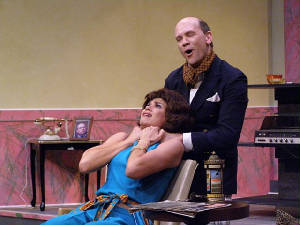
|
| James "strangling" Adam Carter in "Die! Mommy! Die!" |
TSP: In your opening chapters, you write about all the somersaults you, many of us, turn,
all the rationalizations we tell ourselves, all the avoidance tactics—just to avoid facing the truth. Looking back,
was that unavoidable for you? Pretending that lump, that sense of weight, was surely any number of things, just not cancer.
Spider bites, boxer shorts, ice packs … oh my.
James:
Ah, the beauty of magical thinking: “If I pretend a problem doesn’t exist, it will disappear.” Try doing
that with your bills sometime, and see how well it works out. They won’t go away. Tumors are just as persistent, unfortunately.
I was always so healthy that I couldn’t believe
I might have something serious. It was not difficult to come up with a whole myriad of possibilities that didn’t involve
cancer. Of course, in retrospect, you see how ridiculous my theories were.
TSP: The medical field, at least
initially, didn’t exactly do right by you. Any messages you have for those who didn’t take you seriously? For
those who may find themselves in similar situations? Lessons learned? Such as, bring your own cookies …
James:
If you have questions about something that’s wrong with your body, go to a specialist; don’t fool around with
someone who doesn’t know about your condition. The guy I went to initially was in family medicine — he had not
a clue what was wrong with me, and he gave me really bad advice and worthless prescriptions. I shouldn’t have expected
anything more. It was like consulting a labor law lawyer about a tax problem.
And pass on those cookies in the recovery room,
unless you have phenomenal insurance. Believe me, you can’t afford them.
TSP:
So, you had cancer—once it was finally diagnosed—but you didn’t feel sick. You kept working, you kept chugging
along, you kept it to yourself for some time yet. All in all, you took that news pretty well … what was that moment
of diagnosis like for you? Hammer or a surreal glancing off the brain?
James:
I had more or less diagnosed myself before the doctors told me, thanks to Google. I had entered all my symptoms in Google
and page after page came back cancer this and cancer that. So I could see where this particular road was taking me. When my
doctor confirmed it, frankly, there was a sense of calm in a strange way. At least I knew what I was dealing with. We had
solved the mystery. You know how sometimes you hear eerie sounds when you’re in a dark room and you expect something
terrifying, then you turn on the light and realize there’s nothing to be afraid of? It was like that. The unknown unnerved
me; cancer was at least something I could learn about and ask questions about.
TSP:
And then when you did let people know, you got some pretty strange reactions …
James:
I can’t cast any stones because God knows I have said some pretty mindless things myself when I’ve been confronted
with startling news. I am sure no one intended to offend me, but it was kind of hard to hear some of those questions and comments.
When you try to set someone’s mind at ease by telling them, “I’m not going to die from this,” and
they respond, “Are you sure?”” — that does kind of shake you up a bit. Most people were wonderful
and supportive. Some were perhaps a bit less reassuring.
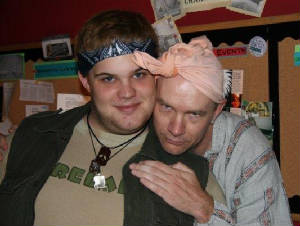
|
| Backstage at "Hair" with Kyle Waterman |
TSP: Some years go by. You are still working
at the Kalamazoo Gazette, and you realize that you are no longer stressing over the assignments the way you
used to, and you are able to say no to more invitations to make public appearances. You even allow yourself to sleep in now
and then. What changed?
James: I think I came to the realization -- perhaps a bit late in life --
that you can only give up so much of yourself or your time. I'm not championing the virtue of selfishness, like Ayn Rand,
but there is a certain point at which you have to start looking out for your own interests instead of constantly allowing
your schedule to be determined by others. I was so caught up in impressing people and topping whatever I'd accomplished last,
but where was that taking me?
There's a Burt Bacharch/Hal David song from "Promises Promises" called "Knowing When
to Leave" that goes, "Fly while you still have your wings/Knowing when to leave will never let you reach the point of no return."
And, corny as it is, it's absolutely true. I finally realized I was not doing a better job just because I was turning in 10
hours of overtime instead of five -- but I certainly was more exhausted. I learned to set limits for myself and budget my
time more wisely. It's tougher than it sounds because when you're trying to make a name for yourself, you're tempted to jump
on any opportunity that comes along: "A TV appearance? Of course, I'll do it! You want me to speak to your writing group?
Sure thing!" But eventually you have to stop and make some difficult decisions and figure out exactly what kind of benefit
you're going to get from this, versus what you could be doing with your family or your friends or just for yourself in that
same space of time.
I also stopped watching so much TV. You wouldn't believe how that opens up your schedule. I have
heard from people who've asked me, "How do you find time to write a book? How do you have time to review so many movies and
go to so much theater?" And then I listen to these same people give me thorough rundowns of what's been happening with the
Kardashians, or the "Teen Mom" girls, or Snooki and The Situation. I've yet to meet a single person whose life has been changed
for the better by sitting through "reality-TV" night after night. That, to my mind, is time-wasting. I don't begrudge anyone
a little brain candy, but I just heard about a survey that said the average American watches more than 35 hours of TV a week.
Think about what you could do with that kind of time: That's practically a full-time job.
TSP:
An important part of your story, James, is body awareness, of self acceptance. Getting cancer made you acutely aware of your
own physical self, and that brought back a lot of memories, inspired some poignant introspection …
James:
Acting teachers sometimes urge you to use a process called “sense memory,” in which you reach back into your own
experiences to find the emotions for the character you’re playing. But it’s always surprising how forceful some
of those memories can be — I did not expect to be feeling torn up over things that happened more than 30 years ago,
but there were times when I had to stop and put my head down for a few minutes. But you eventually realize that was then,
this is now, and you move along.
TSP:
You also wrote about how hard it was to let someone, anyone, back into your life on an intimate level. You didn’t want
to be seen or touched, sure that you had turned into a monster, but in truth … well, cancer, that experience, becomes
something of a blessing? Or is that taking it too far?
James:
Isn’t it peculiar that the most difficult part of the journey came after the diagnosis, after the surgery, after the
radiation? It’s still a bit painful to think about seeing that scar for the first time. I was convinced that was The
End. Period. No more bathing suits, no more showering in the gym locker room, certainly no more revealing my body to anyone.
But that was a complete overreaction on every level. I thought the doctors had lied to me about the scarring and that I was
completely mutilated. No one had told me it would take time to heal. But it did. There is literally no trace whatsoever of
what was once there.
Was cancer a blessing? I’m not sure I would
go that far. I certainly don’t tell my friends, “Ooooh, you’ve just got to get it — it’s amazing!”
But it definitely led me to see so much of my life in a different way. My priorities are very different than they were 10
years ago. What astounds me the most is that, as far as intimacy goes, I have honestly had the most fulfilling, exciting experiences
since the cancer experience. I think finally accepting my body and being at peace with who I am made all the difference in
the world. Would I have ever made it to that place without going through what I went through? I can’t say.
TSP:
While going through radiation treatments, you made a decision not to go to any support groups. Looking back on that decision,
do you feel the same way today?
James:
I was sure I didn’t need support or guidance, that I could do it all on my own. I wonder what I thought I was trying
to prove. I don’t waste time and energy regretting what I did or didn’t do, but I will say that a few support
group meetings would not have hurt me. I think I was afraid of getting stuck with a bunch of frightened, depressed people
who would bring me down. That was probably not the case at all, but since I did not go, I’ll never know.
TSP:
And then there is improvisational comedy. Talk to us about Crawlspace Eviction and your other experiences performing comedy.
James:
I had grown up in theater — I had done plays and musicals since I was a child — but I never had any real interest
in improvisation. I had worked with too many people who had told me, “That’s not real theater, that’s just
people fooling around and making up silly stuff.” So I had this prejudice for years: If you weren’t memorizing
a script and moving as directed, well, that wasn’t theater. But after I had my surgery, I thought about getting back
into theater and my great friend Derek Dudek suggested I get in touch with Dann Sytsma; they had done a show together at the
Civic, “Beau Jest,” and Derek and I had gone to see Dann in “Tony N Tina’s Wedding,” which is
mostly an improvised show. Dann was teaching an improv class at the Civic and he urged me to enroll. I thought it sounded
crazy, but I took a chance.
I loved it from the very first session, and at the
end of the last meeting Dann told me he was starting an improv group and he hoped I would audition for it. I did not see that
happening at all, but at the last minute I decided to give it a shot. There were 40 people there competing for basically two
open slots! Amazingly, I was one of the people selected for what became Crawlspace Eviction. It was absolutely one of the
most fulfilling projects I’ve ever been involved in — and it certainly changed my perception of what improv is.
Yes, it is definitely real theater, in every regard. You are not just out there fooling around. You have to listen, you have
to respond, you have to establish relationships with the other performers. And, of course, it helps if you have something
funny to add to the scene!
TSP:
And then, Hair. Beads! Flowers! Freedom! Happiness!
James:
Well, you can blame Randy Wolfe for that. He is not only one of my closest friends, but also a director I completely trust.
And we have a long history of him talking me into doing shows I didn’t think were right for me. He wanted me for “Psycho
Beach Party,” which I wasn’t remotely interested in; he got me, and the show was a huge hit. He wanted me for
“Die! Mommy! Die!” — as a constipated, fiftysomething Jewish movie mogul. It took forever to find that role
inside me, but he made it happen. And then he told me to do “Hair,” and I said absolutely not, that there was
no role for me in that show. I loved the music and the spirit of the piece, but I felt I was much too old for it. And I hadn’t
done a full-blown musical since the Carter Administration! He insisted it would work. Again, he was right. And what an incredible
experience it turned out to be.
TSP:
Will The Sum of My Parts also be available in print form? Are you doing any author
appearances, readings? Have a website for those who want to learn more about you?
James:
I’m not sure if there will be a print edition because it’s only about 62 pages long. I do have a Facebook “fan”
page where I will be listing upcoming events.
TSP:
Thanks so much, James. We are ever so pleased to have you with us, you and all your parts, whole and healthy again. Thank
you for making us smile — even when the subject is serious.
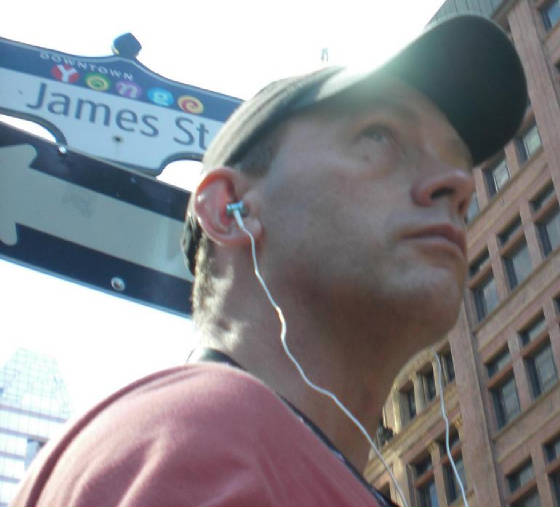
|

